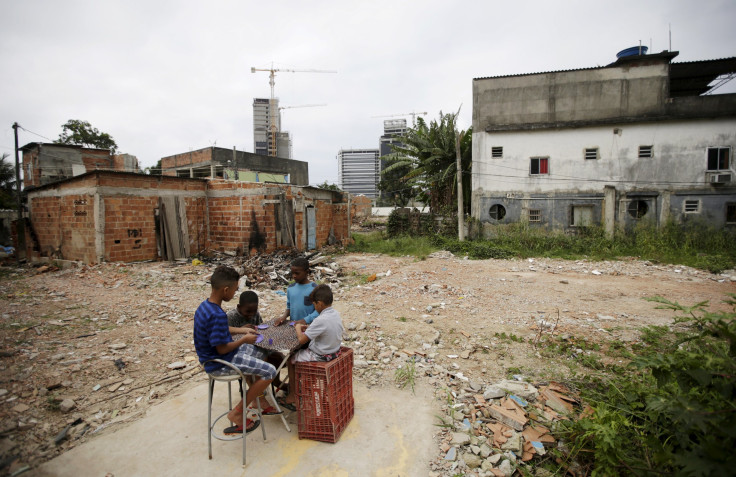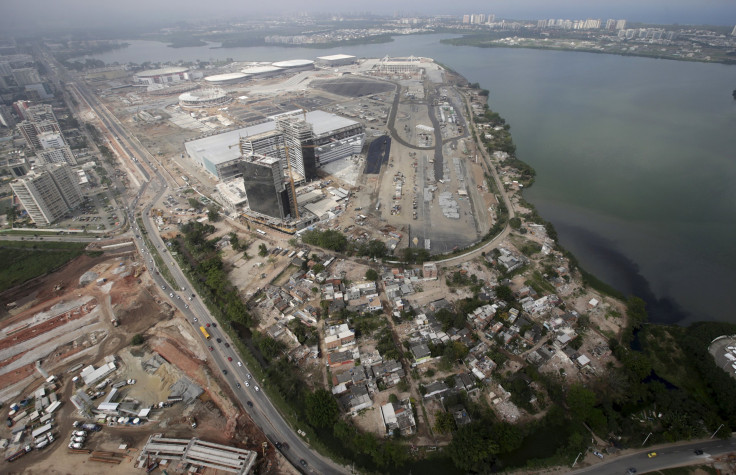Rio Olympics 2016: Local Brazil Governments 'Resettling' Thousands of Families Before Games Begin

Housing advocates in Rio de Janeiro say the city government has been using the 2016 Olympic Games as a pretext for forcing residents from their homes and segregating the city, the Guardian reported Wednesday. Figures released by the Rio government in August claim 22,059 families in Rio were resettled between 2009 and 2015.
While city hall claims most of the resettlements were due to danger risks -- such as landslides, flooding or residing in ruined homes -- critics say the Olympics are the real justification.
“Wherever there is an Olympics, the level of transparency goes way down,” said Theresa Williamson, executive director of advocacy group Catalytic Communities. “Whether it’s for the new [Bus Rapid Transit system] or the evictions at Vila Autodromo, the Olympics is the context for all these resettlements.”

It was necessary, the city said, to move 344 families from Vila Autodromo this year. The favela, or squatting settlement, is on the route the city needs in order to build access roads to Olympic Park. The resettlement plans provoked protests prior to the springtime evictions, after many residents refused to accept compensation deals from the city to move off the land. According to the city’s figures, 49 families remained in Vila Autodromo as of August 2015, despite attempted forced evictions by the police in June that led to violent confrontations.
Of the 22,059 families moved since 2009, 16,309 of them were resettled to government-funded housing estates such as Minha Casa Minha Vida. While many of the residents were moved to locations near their old homes, more than 8,600 families were moved to Minha Casa Minha Vida properties in the city’s West Zone, which can be up to 37 miles away from the city center.
Experts say the city’s resettlements have had massive repercussions on residents, who often suffer from poor transport links to the inner city, fewer job opportunities, more expensive utilities and a lack of basic infrastructure such as schools or health facilities.
© Copyright IBTimes 2025. All rights reserved.





















